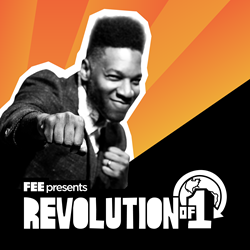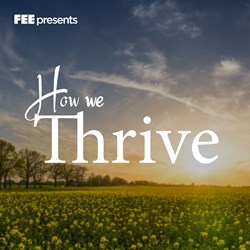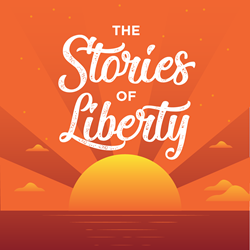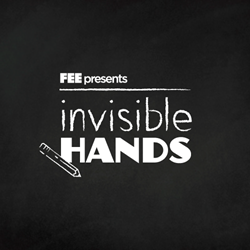B-ROLL: AVENGERS ENDGAME
SEAN
After Avengers: Endgame, you might think Thanos is dead. But he's still very much alive and dangerous... In the real world.
CLIP:
THANOS
"I'm inevitable."
SEAN
Yeah.
Before we begin, this video is definitely going to include a bunch of spoilers for Avengers: Endgame. Cool? Ok.
OOF Titles.
SEAN
Welcome to Out of Frame.
B-ROLL: Thanos' snap/people turning into dust.
SEAN
In the aftermath of Avengers: Infinity War, half of the population of all life in the universe has been wiped out of existence. Not just humans and other sentient alien species, but also all the animal life as well.
CLIP: Scott Lang looks out into the aviary at the Avengers facility, with no birds.
B-ROLL of Scott walking down the derelict streets of SF.
SEAN
For five years, everyone left alive suffers from Thanos' successful act of cosmic destruction.
And while the movie does do a good job of showing many aspects of what people have lost, I don't actually think it goes nearly far enough.
Sure, we see derelict buildings and homes. We see abandoned cars left in the streets. We see garbage piling up in major cities.
And of course, we see the human costs.
People's friends and family, their co-workers, neighbors, half the people they love and care for are gone.
Captain America, suffering from the loss of his best friends and the weight of his own failure to prevent this cataclysmic genocide, now leads a support group for other people struggling to cope with these losses.
CLIP: Support Group
STEVE ROGERS
...
SEAN
Almost a third of the film's three-hour runtime is devoted to depicting the misery created by Thanos' actions, so it would be a little absurd to say that the film didn't spend "enough" time on that point.
And yet, it still fails to show the full scope of the problems this kind of event would actually cause.
The true consequences of Thanos' snap would be so much worse than most people can even imagine.
It all goes back to what I said in my previous video on Avengers: Infinity War about the nature of resources and the importance of localized knowledge, specialized skills, intelligence, and creativity in building a prosperous world.
Thanos believes that more people just means more mouths to feed until eventually all the resources in the universe are gone. A lot of people who commented on that video seem to agree.
But... That's not how any of this works.
A raw material only becomes a "resource" if it is actually useful and valuable to people. They are a creation of human understanding and ingenuity.
It is the knowledge of how to make steel that allows us to turn red rocks into skyscrapers.
Without understanding what to do with it, iron ore is basically useless.
It's just something that happens to exist in the world.
But once people figured out metallurgy, those rocks became a valuable "natural resource" that have improved people's lives for centuries.
More people in the world means more minds coming up with innovative, entrepreneurial solutions to big problems, and it means more specialized knowledge and skills that turn those ideas into reality.
It means finding new and better resources.
We can look back over the history of the world and see exactly this play out.
B-ROLL: Moving image of per capita or average incomes over time.
SEAN
As our population has grown and as we have moved away from isolated, feudal serfdoms towards freer, more interconnected societies where individual people actually have the right to own property and make their own economic choices, we've seen an insane expansion of wealth and resources that has lifted billions of people out of poverty.
On the other hand, murdering half the population would mean that a huge amount of knowledge and skills would disappear in an instant, and that means that the losses to the universe wouldn't just be emotional.
There would also be a catastrophic regression in standards of living around the world as we lose countless doctors, engineers, farmers, mechanics, pilots, plumbers, and people with every other type of skill.
The snap would cause shortages of every valuable good or service, and a severe drop in quality for whatever we were still able to produce.
The gains in prosperity we've seen over the last few hundred years would turn to dust right along with the people who make that prosperity possible.
Of course, a lot of people were upset the last time I talked about this, claiming that economic prosperity comes at the cost of environmental health, and so even a massive death toll is worth it to save the planet.
CLIP: Steve talks to Natasha.
STEVE ROGERS
"I saw a pod of whales in the Hudson the other day."
B-ROLL...
SEAN
Setting aside the fact that Thanos also wiped out half the remaining endangered species in the universe along with all the people, we can acknowledge that environmental conditions would absolutely change.
One of the most basic lessons of economics is that every single choice we will ever make involves trade offs, and raising the living standards for billions of people around the world is certainly no exception.
It's true that the Industrial Revolution brought with it new environmental challenges, beginning with a significant increase in air and water pollution, along with the introduction of tons of CO2 into the atmosphere.
But... The very same norms and institutions that were essential to creating electricity, continuous lighting, heating and air conditioning, affordable transportation, medical technology, refrigeration, computers, internet, movie theaters and everything else that brought our species from the nasty, brutish, and short lives of bare subsistence we experienced for hundreds of thousands of years to what we have today are already working to fix environmental problems.
Thanks to recent increases in economic freedom in some of the poorest parts of the world, billions of people are starting to catch up to the level of prosperity we've had in the US for decades.
As that's happened, their concerns are shifting away from immediate problems like lack of food or shelter towards longer-term global problems like pollution, animal welfare, and climate change.
When people don't have to worry about feeding their own children, they can think about other things instead.
Stop and think about what that really means for a second.
We're entering a world where millions of entrepreneurs and innovators - not just a few thousand scientists and politicians - are working to create products & services designed to solve those kinds of problems.
And unlike what happens in politics, entrepreneurial solutions are actually tested against competing alternatives and filtered by consumers who are free to choose the ones that best meet their needs.
That's what we need if we want to come up with answers that actually work and don't create a ton more problems in the process.
B-ROLL: Thanos pontificates and gives grand speeches about his vision for the universe.
SEAN
Thanos represents the opposite of entrepreneurial freedom.
Central planning is a top-down approach, where one-size-fits-all policies created by people like Thanos who think they alone can successfully dictate the future of a society overwrite the choices, values, and goals of billions of individuals.
History is filled with these kinds of people.
The problem is, it simply doesn't work.
I've talked about this a bunch of times on this series, but I really can't stress this point enough.
The world is incredibly dynamic.
Conditions are constantly changing, and all of us will only ever see a tiny fraction of the full picture.
You know stuff about your local environment, your town, your home, your job, and just about yourself - your interests, preferences and immediate needs, your skills, what you value - that I don't know, and will never be able to know.
And even if I was able to learn a little bit of what you know today, it will all be different tomorrow.
Now multiply that by nearly 8 billion people just on Earth who all have unique knowledge and values, and you should begin to understand why trying to make decisions that fit everybody's needs is impossible.
The Nobel-prize winning economist F.A. Hayek wrote a brilliant essay about this called, "The Use of Knowledge in Society".
I'd strongly recommend that everyone read that paper. Check out the link in the description.
But the point is this:
The fact that all knowledge is highly decentralized and constantly changing is a huge problem for Thanos.
He thinks he's making the universe a better place, but he doesn't actually know what's best for trillions of people. Nor can he simply "fix" the universe for all time by making one sweeping decision, because the physical universe is constantly changing and evolving, and people are adapting their values and choices along with it.
We're living in an infinitely variable world, and there is no one way of doing things that's best for every planet or every individual for all time.
Even with the Mind Stone, which Thanos didn't have until long after he'd already decided to impose his will on everyone, he's still only acting in service of his own values, regardless of what anyone else thinks is best.
But nobody - certainly not the Mad Titan - knows in advance what the right solutions to big problems are even going to be, and a single solution is almost never going to be right for every person in the world anyway.
Reality is complex, our knowledge is inherently limited, and the fact that governments - or cosmic tyrants - have the power to force people to comply with their vision without getting anyone's actual consent gives them horrible incentives that often lead to destructive outcomes.
Power corrupts, remember?
And that brings us back to Endgame.
When Thanos realizes that his master plan to save the universe will ultimately fail, his answer is simply to try harder with 100% more authoritarianism.
CLIP: Thanos sits, helmet off, just before the massive final battle and "thanks" the Avengers for teaching him a lesson.
THANOS
[Something along the lines of: "As long as someone remembers what things were like, they'll screw up my plans, so I must do this again but wipe everyone's memories and eliminate their free will so they all go along with what I think is right."]
SEAN
This is the moment where Thanos' true nature is revealed.
In Infinity War, Thanos tells Gamora that his goal is to save the universe from itself. He claims that by eliminating half the population, the other half will be better off.
The next five years of suffering around the universe proves him wrong.
But instead of gaining any sense of humility and questioning whether or not he even has the right to impose his will on trillions of people, he comes to a different conclusion: Just use more violence.
This is what tyrants always do.
When their plans don't pan out the way they expect, they blame everyone else for failing to adequately comply, and their answer is always the same.
To that end, I think Thanos is right about one thing... He is sort of inevitable.
B-ROLL: Cartoon version of Road to Serfdom.
SEAN
F.A. Hayek wrote another book in 1944 exploring the rise of authoritarian regimes that's relevant here called "The Road to Serfdom".
In it, he observes a pattern that has played out countless times around the world.
First, the central planner uses fairly conventional democratic means to assert control over the economy. Perhaps they pass legislation to push private citizens into using their resources the way they think is best. When that doesn't produce the results they promise, they add more rules and restrictions.
When that doesn't work, they blame the compromises inherent in democracy and concentrate power into the hands of a "strong man"... a dictator who will be able to act more directly.
And when even that doesn't create the world they're looking for, they get more aggressive, arresting dissenters and imprisoning people who don't just do what they're told.
Eventually (assuming their society doesn't radically change course back towards more individual freedom) fines and imprisonment turns into firing squads.
Or... Into hordes of vicious space monsters attacking your "unruly" planet.
Thanos is the inevitable end state of central planning put into practice, and we should never be surprised when it leads to murderous violence.
CLIP: Thanos enjoys killing.
THANOS
"I'm going to enjoy this..."
SEAN
The takeaway is that we need to be very careful about how much power we give people over our lives.
The more we allow people to try to control economies and societies, the more we are giving them license to create a world where problems are solved with violence instead of voluntary cooperation.
And no matter how good our intentions are, or how confident we are that our solutions to world problems are correct, imposing them by force is probably the quickest route to disaster.
Even at a relatively small scale, more centralized control can have deadly outcomes. In the end, every law is backed by force, and just in the US, citizens have been killed by police over issues as minor as selling untaxed cigarettes and routine traffic stops.
And whenever dictators have attained total control over other people's lives, the consequence has been nothing short of genocidal.
All for an approach to social organization that doesn't work to begin with.
So once again, Thanos isn't just evil. He's also still wrong. But he's not alone. There are aspiring and actual central planners all over the world right now, imposing their dangerous ideologies on everyone else by force in the name of progress, but who actually create nothing but poverty and misery.
Fortunately, we know how to avoid these outcomes, and it starts with humility.
Remember that everyone is unique and valuable, and that we all have important contributions to make to the world.
None of us is expendable.
We all have knowledge and skills that no one else in the world shares, and the only way to benefit from this incredible diversity is to let every individual set their own path and trust that we all want to create the best world we can.
No one person is going to have all the answers, so we need to have a world where everyone is as free as possible to find what works for them.
And as counterintuitive as this might seem, when we allow billions of individuals to pursue their own plans in cooperation and competition with other people who are also free to do the same, we will not only see a massive increase in global prosperity, we will also be able to solve the biggest social problems in the world at the same time.
But we can only do this when we reject both Thanos' barbaric methods... And his garbage ideas.
SEAN
Hey everybody. Thanks for watching this episode of Out of Frame. If you want to know more about the stuff I talked about, check out some of the links in the description or leave a comment and I'll try to get back to you.
In the meantime, check out FEE.org/shows for all the other content we're producing at FEE, and don't forget to like and subscribe to all our social networks on YouTube, Facebook, Twitter, and Instagram.
See you next time!
About this show
Video essays that explore the intersection of art, culture, and big ideas written & produced by FEE's Director of Media, Sean W. Malone.












